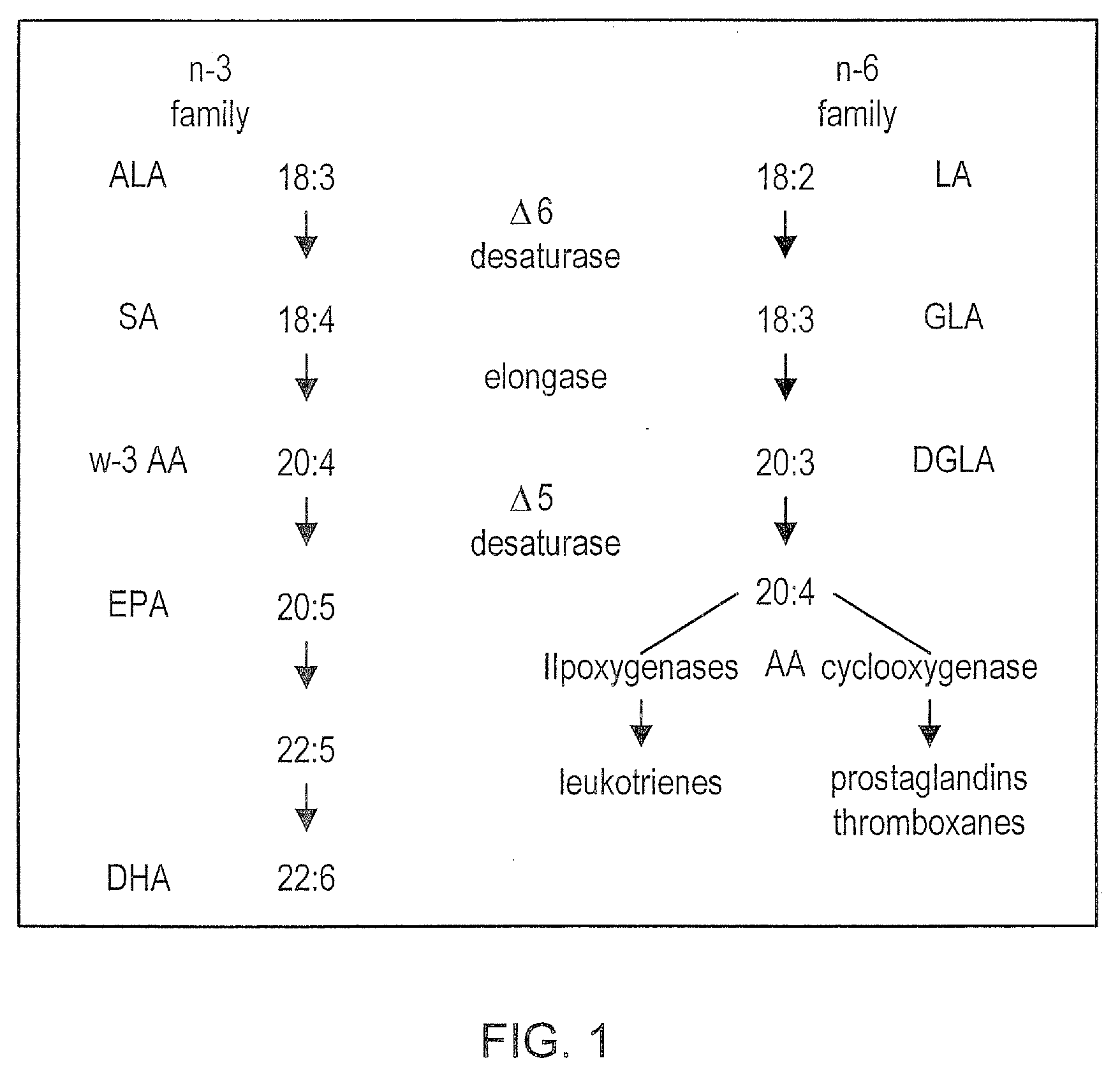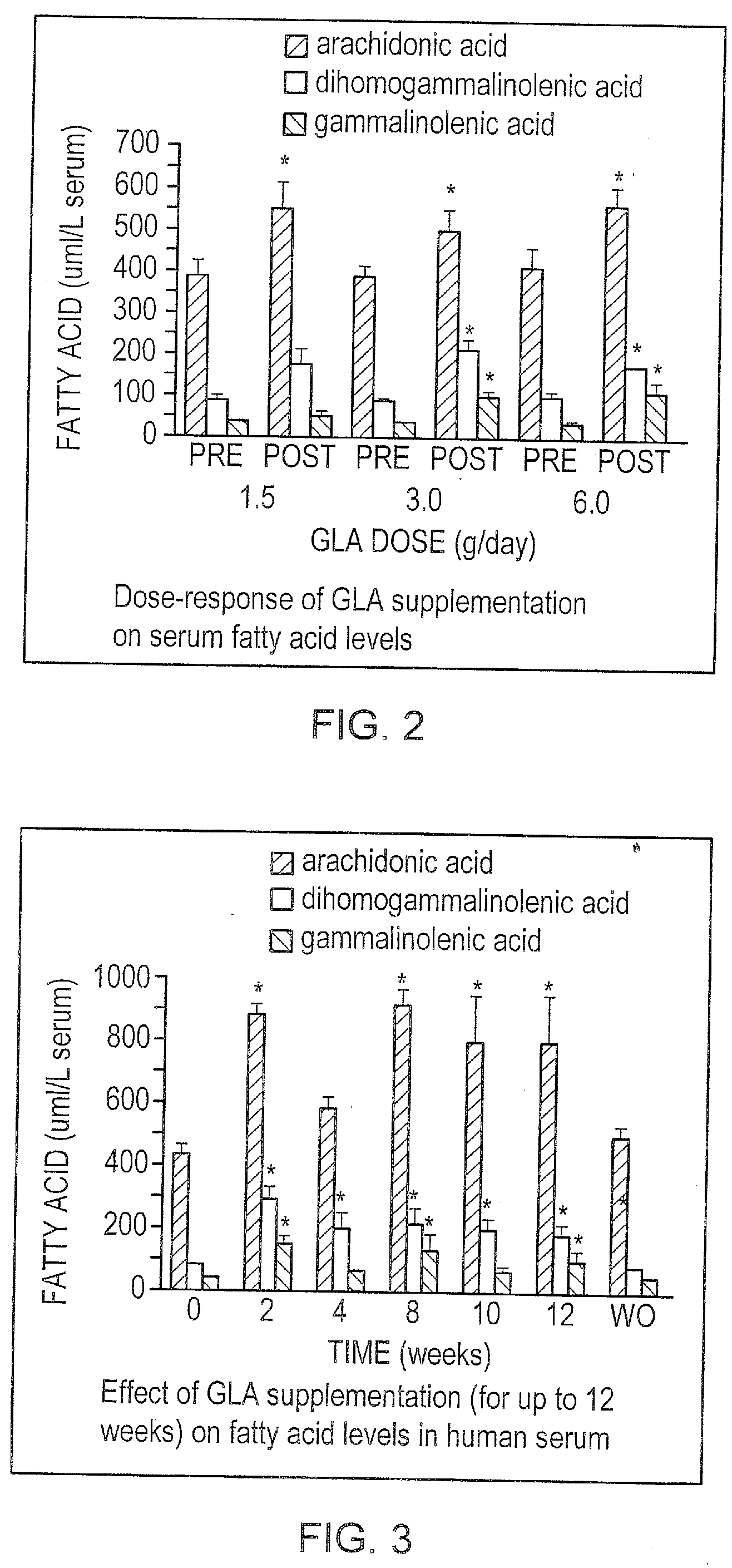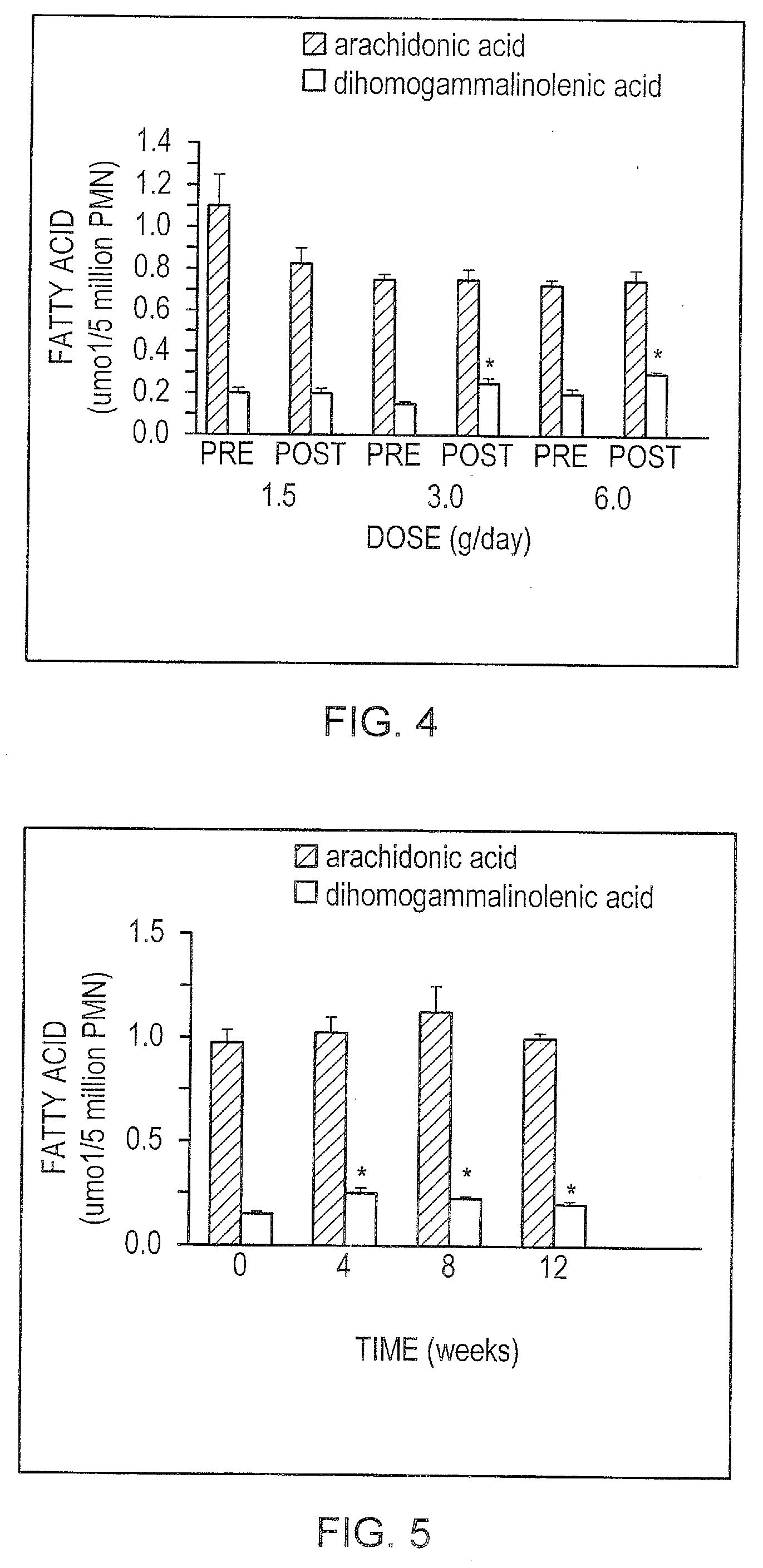Dietary Control of Arachidonic Acid Metabolism
a technology of arachidonic acid and metabolism, applied in the field of lipid metabolism and dietary supplementation, can solve the problems of increased serum arachidonic acid (aa), potentially undesirable effects, and inability to convert dgla to aa and eicosanoids in inflammatory cells, and achieve the effect of preventing the increase in serum aa levels
- Summary
- Abstract
- Description
- Claims
- Application Information
AI Technical Summary
Benefits of technology
Problems solved by technology
Method used
Image
Examples
example 1
In Vivo Studies Examining GLA Supplementation in Humans
Incorporation of Supplemented Fatty Acids into Serum Lipids
[0115] Initial studies examined the effect of dietary supplementation with GLA on the fatty acid content of serum lipids. Here, 9 healthy adult volunteers consumed a controlled eucaloric diet consisting of 25% fat, 55% carbohydrate and 20% protein prepared in the metabolic kitchen of the GCRC.
[0116] Four menus were served on a rotating basis throughout the study period. In addition, three groups of three volunteers supplemented this diet with three different doses of GLA.
[0117]FIG. 2 demonstrates the effect of GLA supplementation at three different doses on serum levels of GLA, DGLA, and AA. In all three groups of subjects, AA significantly increased in serum lipids at the end of the three-week dietary period when compared with baseline values. Both GLA and DGLA significantly increased in the groups receiving 3.0 g / day and 6.0 g / day. In the two highest dose groups,...
example 2
In Vitro Studies Examining the Metabolism of GLA in Human Neutrophils
[0126] It is generally assumed that the liver has a key role in the in vivo elongation and desaturation of n-6 fatty acids. However, the role of other cells (especially inflammatory cells) and tissues has not been extensively studied. In addition, it is critical to evaluate the mechanism of leukotriene inhibition in less complex (than in vivo model) systems. To begin to address these problems, the inventor developed a model in which neutrophils could be incubated long-term with fatty acids or other fatty acid derivatives. Human neutrophils have been isolated and cultured overnight in RPMI, 2% insulin-transferrin and fetal bovine serum (FBS). In initial studies, varying concentrations of GLA (complexed to albumin) were provided to these cultured neutrophils for 24 h. FIG. 10 shows quantities of DGLA and AA in neutrophils at increasing concentrations of GLA. The quantity of DGLA in neutrophil glycerolipids increase...
example 3
Influence of the Combination of GLA And Eicosapentaenoic Acid (EPA) on the Fatty Acid Composition of Serum and Neutrophil Lipids
[0129] As mentioned above, a concern with the long-term effects of GLA supplementation is that there is an increase in serum levels of AA. There is a need, therefore, to find dietary strategies that will produce natural antagonist of AA in inflammatory cells without increasing serum AA. Previous in vitro studies in isolated hepatocytes and in vivo studies in animals suggest that EPA is a product inhibitor of the Δ5 desaturase (Gronn et al., Biochim. Biophys. Acta, 1125:3543, 1992; Dang et al., Lipids, 24:882-889, 1989). In order to determine whether EPA would perform a similar function in humans in vivo, three subjects on control diets (25% fat) were supplemented with a combination of EPA (1.5 g / day) and GLA (3.0 g / day) for three weeks. It was shown (FIG. 4 and FIG. 5) that this quantity of GLA (alone) induces marked increases in serum AA in both the shor...
PUM
| Property | Measurement | Unit |
|---|---|---|
| flow rate | aaaaa | aaaaa |
| pH | aaaaa | aaaaa |
| pH | aaaaa | aaaaa |
Abstract
Description
Claims
Application Information
 Login to View More
Login to View More - R&D
- Intellectual Property
- Life Sciences
- Materials
- Tech Scout
- Unparalleled Data Quality
- Higher Quality Content
- 60% Fewer Hallucinations
Browse by: Latest US Patents, China's latest patents, Technical Efficacy Thesaurus, Application Domain, Technology Topic, Popular Technical Reports.
© 2025 PatSnap. All rights reserved.Legal|Privacy policy|Modern Slavery Act Transparency Statement|Sitemap|About US| Contact US: help@patsnap.com



